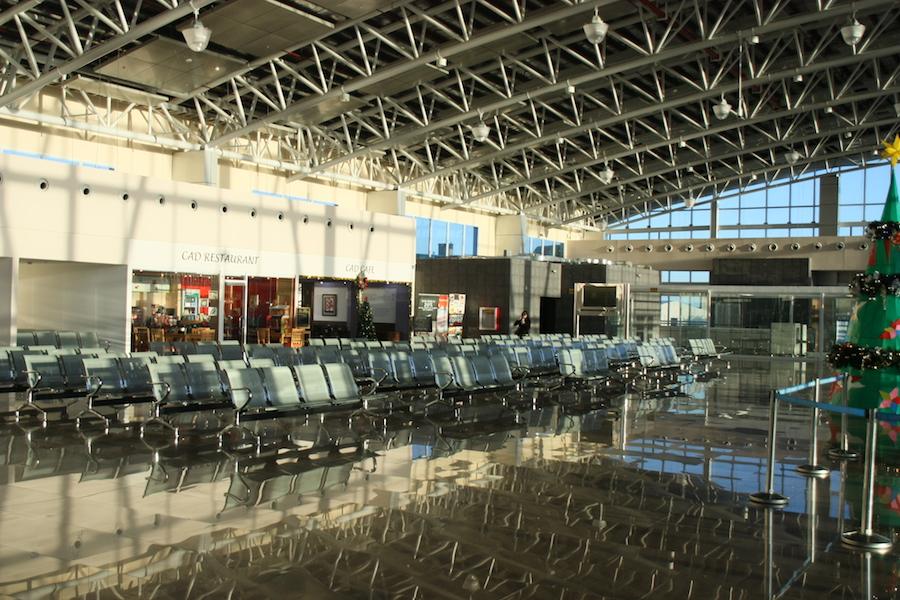11 Awesome Ways To Sleep Completely For Free While Travelling The World

I think it's pretty fair to say that the vast majority of travellers want to know how to stretch their money further, so that they can travel farther and wider with the finite financial resources that they have.
Depending on where you travel, accommodation will usually either be your greatest or second greatest expense, with food being a close contender for this title.
If you want to see more of the world with less money, it therefore makes sense to examine this big expense and see if there’s anything you can do to minimize it.
It turns out that there are ways to not only reduce accommodation expenses, but also eliminate them entirely.
We are not talking about those less-than-appealing arrangements where you work on a farm or perform some menial chores in exchange for free accommodation. That is essentially no different from paying for your lodging with cash.
We are instead going to tell you the ways to reduce accommodation expenses that require minimal investment on your part.
Of course, you will still need to make some small sacrifices and be a little more adventurous if you want to sleep for free, but if you’re willing to do what it takes, you can really can sleep without spending a dime.
We have been travelling in Southeast Asia for the past few years and have tested several of the following methods, although admittedly, not all of them.
We would also like to add that most of these methods are not limited in their application to Southeast Asia and will allow you to sleep for free virtually anywhere in the world.
Without further ado, here are 11 ways that you can sleep for free while travelling the world.
#1 - Use hospitality exchange platforms

The couchsurfing movement is a growing trend throughout the world where ordinary homeowners or tenants are willing to host travellers for a few nights in their own pads without requiring any monetary compensation from the traveller.
You might get a couch, a mattress, a bed or some floor space but you won’t be expected to pay any money.
Now some of you may be a bit skeptical about this movement and rightly so, as we all know that “there’s no such thing as a free lunch.” Right?
Well, if you think about it, a traveller does often bring some value to these hosts by sharing their entertaining travel stories. Some hosts are former travellers or people who don’t have the opportunity to travel themselves and can at least continue live out their dream vicariously through other travellers.
Hosts also do it for the new social opportunities, the chance to learn about foreign cultures, get exposure to new languages and sometimes just out of loneliness or the need for companionship. Travellers might also bring a small gift or offer to do chores for the host.
Travellers are therefore normally expected to interact with and spend a certain amount of time with the host, perhaps eating meals together or touring the local sights and attractions.
It’s definitely bad manners and a raw deal for the host if you turn up just for the free accommodation and behave anti-socially or provide no value in return.
There are many hospitality exchange websites now where you can create your own profile and start searching for potential hosts in whatever destination you plan to visit next.
You can also host other travellers at your own place whenever you’re not travelling, although it’s not usually compulsory to host.
To maximize your chances of being accepted whenever you send out requests, make sure that your profile is as attractive as possible by offering metric tons of value to potential hosts.
Hosts like to see that you’re sociable, outgoing and that you can teach them something new. Remember also that it’s a numbers game and so you should send out dozens of requests well in advance of your intended arrival date.
The most popular hospitality exchange website for finding hosts is couchsurfing.com. Here you will find a huge number of hosts and other travellers, even in towns or countries where you wouldn’t have expected to find any hosts. This used to be a non-profit but that is no longer the case since May 2011.
There are several other hospitality exchange platforms (mostly non-profits) but your success rate on these will probably be much lower as they aren’t as popular as couchsurfing and don’t have nearly as many members.
Here are a few of the more well-known ones:
Warmshowers.org – Specifically geared towards cyclists
Globalfreeloaders.com – Requires you to host other members
Hospitalityclub.org – The second largest platform after couchsurfing
Bewelcome.org – French non-profit
Trustroots.org – Was initially built with hitchhiker’s in mind
Servas.org - Peace and understanding through travel and hosting
#2 - Stay with friends or relatives
If you’re lucky enough to already have close friends or relatives in the country you’re visiting you can give them a heads up before you arrive and ask them if they wouldn’t mind hosting you for a while.
This is also something that becomes easier the longer you have been travelling for and especially if you travel solo. As you travel you’ll have opportunities to meet new people from all over the world and thus expand your social circle.
Your Facebook friend list will likely grow organically to astronomical proportions if you constantly reach out to new people. Those same people that you befriended on the road may be able to host you when you visit their native country in the future and you can likewise return the favour when they visit yours.
#3 - Stay with a lover

Many travellers find themselves getting involved in romantic relationships with natives of the opposite sex, perhaps partly to ease the costs of travel but mostly because they’ve found that exotic foreign charm to be irresistible. Quite simply, they've become love-struck.
In some cultures it might be socially inappropriate for a foreigner to stay with a local person’s family but if the person whose heart you've captured is living independently, then you may be able to stay with them for a while for free.
Many forward thinking travellers will also get themselves entangled in romantic love affairs in advance of their arrival by using dating websites like okcupid, tinder and so on. Yes it is apparently possible for two people to fall in love online before they have ever met each other in the flesh.
While entering into a romantic relationship will help you to secure free accommodation, we don't suggest that you ever lead somebody or on or pretend to love somebody for the sake of being offered a free bed.
You should only stay with somebody that you genuinely have fallen for, love for who they are and that you can also offer your commitment to. Or if you don't intend to offer your commitment, the other party should at least be in agreement with this and made aware beforehand that it will only be something short-term.
Exploiting and later discarding people who thought they had a future with you is definitely not fair.
#4 - Try wild camping

Camping is a fantastic way to sleep for free as long as you avoid designated campsites or places that try to charge you money for using their land or facilities.
The type of camping that is totally free is known as wild camping or guerrilla camping and is a great way to save money on accommodation if you’re adventurous enough to try it. It involves camping outside of designated campsites wherever there is a suitable opportunity.
This type of camping may not always be completely legal because you are often camping on land that is not recognized as belonging to you. Therein of course lies the beauty in wild camping. You know that nobody has the right to claim exclusivity to a piece of the Earth and you are determined to prove it.
However, you probably shouldn’t try it in national parks because it’s usually strictly illegal to do so and in addition to the risk of incarceration or receiving the death penalty, there are often additional hazards in these parks like wild animals (elephants, tigers, leopards etc.).
For wild camping in tropical or sub-tropical countries, the essential piece of equipment is a good nylon hammock with an in-built mosquito net and perhaps a foam roll mat to line the base of the hammock with (because mosquitoes can often still suck your blood through the nylon fabric).
A hammock is ideal because it keeps you off the ground away from biting ants, spiders, centipedes and other insects and hammocks are perfectly suited to the warm nights in this part of the world as they allow air to freely circulate around your body.
The hammock that we personally use and wholeheartedly recommend is the Snugpak jungle hammock. It's lightweight, comes with an integrated mosquito net and has lasted us for years. We also carry a square DD tarp (3m x 3m), to provide a temporary roof above the hammock in case it rains during the night.
Perhaps the best places in the tropics for hammock camping are any of the numerous secluded beaches that line the coasts and offshore islands.
It’s best to look for a beach with a stand of casuarina trees or a jungle directly behind it because this way you can set up your hammock at the jungle edge, where you will have some shade from the intense tropical sun and also have access to firewood for cooking. The onshore breeze blowing into the trees behind the beach also helps to keep flies and mosquitoes in check.
Do be careful however with camping underneath coconut palm trees if you're going to camp behind a beach. Heavy coconuts can often drop without warning so make sure you’re not sleeping directly underneath a large ripening cluster.
While it's not exactly wild camping, guesthouse owners, especially those in laid-back backpacker resorts behind beaches or in off-beat rural getaways, will often allow you to put up a hammock on their property if they have a suitable spot for you to hang one. You might be able to stay for free like this or at a dramatically slashed rate .
It’s even possible to hammock camp in large towns and cities. We have set up hammocks late at night inside buildings under construction or renovation, abandoned buildings, in people’s back gardens, in public parks, on playing fields and also inside densely packed groves of trees or bushes that provided privacy and concealment.
#5 - Sleep under the stars on beach sun loungers

Many seaside resorts in hot countries will leave their sunbathing chairs out on the beach overnight and just remove the cushions. If you carry your own foam sleeping pad, you can easily roll it out on one of these sun chairs and sleep fairly comfortably.
This obviously works best during the dry season when the weather is calm and the chance of rain at night is minimal. Trying this in the monsoon season could be a different story altogether.
A cooling breeze will usually blow for most of the night, which helps to keep the mosquitoes away, although they can sometimes appear during the windless periods. It’s good to have some warm clothes or a light sleeping bag also as it can get a little chilly in the early hours of the morning when the sea breeze is blowing.
#6 - Try Housesitting

We’re a little reluctant to include this one in the article because it’s not technically free, as you are providing a service to somebody in exchange for the free accommodation.
Also, there is an annual fee for being a member of a housesitting website. However, the investment is relatively low so we think it still belongs here.
Housesitting means looking after or maintaining somebody’s property and possibly their pets (if any) while they’re away and in exchange for your services, you can usually stay for free, although sometimes you may be asked to make a contribution towards utility costs.
It's a great way for travellers that aren't in any hurry to see the world to slow down and save money on accommodation in the process. You can move from one housesitting opportunity to the next at your own pace and build really deep connections with the places where you stay.
The housesitting term could be for a few days, weeks or even several months and you could end up in all sorts of properties, from extravagant mansions to humble seaside cottages.
The way housesitting normally works is that you pay an annual membership fee on a website dedicated to finding you potential housesits. The amount usually ranges from $20 - $150 (rarely that high). Once you have had a few successful housesits and received positive feedback, it becomes increasingly easy to find housesitting opportunities.
Here are five of the best providers to get you started:
Trustedhousesitters - $119 annual fee and the most popular
Aussie House Sitters - $84 AUD annual fee
HouseCarers - $50 annual fee
Mindahome Australia - $59 AUD annual fee
Nomador - $89 annual fee
For in-depth reviews of all these housesitting websites and others, see our helpful comparison guide to the best housesitting websites for finding housesitting jobs.
If you're completely new to housesitting and you're unfamiliar with how it works, then I'd suggest you begin by reading our detailed guide to housesitting for beginners.
#7 - Ask locals for help

If you’re really stuck for money and can’t afford a room, why not get chatting to a few local people and explain your situation to them. You might try starting a conversation on the street, in a local bar or just try knocking on a few doors.
Sooner or later, somebody will surely be willing to help you and might offer you a bed or floor space in their home.
If this makes you feel guilty, just consider the fact that occupying a hard wooden floor for the night in a local's home won't cost that person anything, but it just might save you a night on the streets during a financial crisis.
You don't even necessarily have to stay inside the person's living quarters. The owner may just offer you a veranda or a garage, garden shed, hayloft or other outbuilding.
Just be careful that you don’t go to the homes of any unsavoury characters or get roped into any scams. Also, don’t do this in Myanmar because it’s illegal for foreign visitors to stay with locals there and you could get a local person in serious trouble with the authorities if they get caught.
And of course, we always advocate responsible travel and trying to avoid getting yourself into a financial emergency in the first place. But there's no denying that bank accounts do get hacked, cash can get stolen, ATM machines do malfunction or run out of money and other unfortunate events can leave you temporarily without funds.
It's therefore good to at least be aware that locals are always an option when you are really in need.
As for travelling in this manner and relying on the generosity of locals to provide you with free lodging when you aren't in need of their assistance, that is perhaps a more controversial topic.
But as long as you still reciprocate in some way or another and the other party is delighted to host you for free, nobody can really argue that there is anything wrong with doing that.
And if the local person is happy to host you without expecting or wanting financial compensation in return, then money is probably not going to be the best form of remuneration in any case.
Your host might instead be better remunerated by providing them with a personalized gift, lending them a listening ear, telling them your travel tales, or perhaps assisting them with a few household chores that have been bogging them down of late.
Another situation where locals will often assist you with lodging is if you happen to be hitchhiking after dark in a country. If a local person stops to pick you up, there’s a good chance that you’ll be offered a bed or a meal at the person’s home provided that you are talkative, fun and friendly.
This is what you might call an act of spontaneous generosity and in many circumstances, it would be wrong for you to turn it down.
The person may be offering you a bed not because they feel obliged to, but because they derive genuine delight from the act of giving without expecting anything in return. Rejecting the gift then deprives the person of that joy.
#8 - Sleep in monasteries, nunneries & churches

It’s often possible to sleep for free in Buddhist monasteries, nunneries and meditation retreat centres in some Southeast Asian countries where Buddhism is the dominant religion.
The Indian equivalent is the ashram; a kind of spiritual hermitage where you may be able to stay for free or for a very minimal fee.
In Southeast Asia, buddhist monasteries can be found in Myanmar, Thailand, Laos, Cambodia and perhaps other countries too, although you may not always be readily accepted.
However, you can greatly increase your chances of being welcomed by demonstrating a genuine interest and desire to learn more about Buddhism and practice meditation with the monks.
If you do have success, it’s likely you’ll have to spend the night(s) on a straw mat or on a hard wooden floor somewhere in the monastery. You may also have to commit to a multi-day meditation course in exchange for the free lodging so think twice about what you’re getting yourself into. We’re sorry that we can’t provide more information than this as we have yet to try sleeping in a Buddhist monastery ourselves!
In Europe, you won’t have Buddhist monasteries but you might want to instead try sleeping in churches. We haven’t tried this personally but we have heard success stories from other travellers.
Your approach should be to speak to the abbot or caretaker of the church, explain your situation clearly and ask if you could spend the night inside the building.
The person in charge will most likely provide you with the keys and ask you to lock yourself inside the church during the night. You can then return the keys in the morning.
#9 - Take advantage of sleeper buses and trains
.jpg)
Overnight travel can often be a very wise way to reach a new destination. A sleeper bus or train serves two functions; it provides you with a bed for the night and simultaneously transports you to your next destination.
However, you’re really only paying for the transport so you end up saving money by not having to pay for a room that night. Not only that, but you also don’t lose a whole day to travelling by taking an overnight bus or train.
There is one caveat with this however. The caveat is that this tends to work out better with overnight train journeys than with overnight bus journeys, especially if the bus is taking a winding route through the mountains or passing through remote areas with pothole-ridden roads. Trains are generally less jerky and less bouncy.
If you have a really rough overnight bus journey, it’s possible that you won’t get much sleep at all and will lose the first day at your new destination to sleeping instead of exploring or sightseeing.
And what about check-out times (usually noon) in hotels and guesthouses? Overnight journeys generally begin in the evening so where to keep your luggage so that you can still be productive in the day before you catch your evening sleeper bus/train?
The answer is that most guesthouses will be willing to hold onto your luggage for you and keep it safe even after you check out. You can then collect it again later in the evening when you return. Another solution we’ve found is to pay the owner a small amount of money to allow us to occupy the room for the few remaining hours until it’s time to leave to catch our evening sleeper bus/train.
#10 - Sleep in bus and train stations
.jpg)
Probably the least desirable option of all is sleeping in a bus station or a train station. Bus stations and train stations are usually poorly equipped for overnighting in and it’s likely that you’ll end up sleeping on the floor or on an uncomfortable bench somewhere.
There’s also a high risk of having your bag(s) stolen or rifled through while you’re asleep in such places. It’s probably an option you’d rarely consider unless you really had to do it for some reason. Also, never count on being able to overnight in a bus station or train station as some stations close at night.
#11 - Sleep in airports

Whenever we have an early morning flight to catch, we’ll usually head to the airport the evening beforehand and sleep there overnight. Not only does this save us paying for a night’s accommodation, it also greatly reduces the risk of us missing that early morning flight due to sleeping in or not hearing the alarm clock go off
But will you always be able to get a good night’s sleep at an airport? It depends on the airport. Some airports have nice public lounges with comfortable couches where you actually have a decent chance of getting a good night’s sleep.
Other airports only provide hard benches or seats that are really only designed for sitting for short periods and make very poor impromptu beds. These benches often have annoying metal armrests in between the individual seats, making it impossible for you to sprawl out across several seats.
If you find the facilities in the departure lounge to be inadequate for sleeping, you should also try to investigate the arrival lounge, where seating can often be more comfortable. You can also sleep on the floor in most airports with reasonable comfort if you happen to be carrying a foam sleeping pad, but of course not every traveller is going to have one of those.
Some airports are now providing comfortable ‘sleeping pods’ for travellers, but these come at a considerable cost ($7+ per hour) and thus they are not really relevant to this article as we are only interested here in free ways to sleep.
Here is an excellent website that should help you to determine whether you’re going to be able to spend a comfortable night in an airport or not. We recommend that you refer to this website whenever you’re considering spending a night in one.
Other ways to sleep for free when you travel
Although not "free" in the strictest sense of the world, It's also possible to receive free lodging (and often free board too) by getting involved in volunteering or work exchange projects while you're travelling.
With these work exchange programs you could find yourself helping out at schools, orphanages, hostels, restaurants, organic farms, eco villages, campsites, sailing boats and in many other scenarios. A local host will fix you up with a free place to stay and show you where your help is needed.
There are many platforms out there that can help you to find and apply for these kinds of work-exchange opportunities. Some of the well-established ones are WWOOF (worldwide opportunities on organic farms), Helpx, Workaway and Worldpackers.
Most of these sites levy a small annual membership fee, but when this is peanuts compared to how much money they could potentially save you on accommodation and food.
So tell us, how many of these 11 ways for getting a free night's sleep have you tested? What do you think is the best way to sleep for free while travelling? Please leave us a comment below and give us your feedback.
JOIN OUR LIST
SUPPORT US
FOLLOW US
ABOUT US
Our names are Eoghan and Jili and we hail from Ireland and India respectively.
We are two ardent shoestring budget adventure travellers and have been travelling throughout Asia continuously for the past few years.
Having accrued such a wealth of stories and knowledge from our extraordinary and transformative journey, our mission is now to share everything we've experienced and all of the lessons we've learned with our readers.
Do make sure to subscribe above in order to receive our free e-mail updates and exclusive travel tips & hints. If you would like to learn more about our story, philosophy and mission, please visit our about page.
Never stop travelling!
FOLLOW US ON FACEBOOK
FOLLOW US ON PINTEREST
-lw-scaled.png.png)


